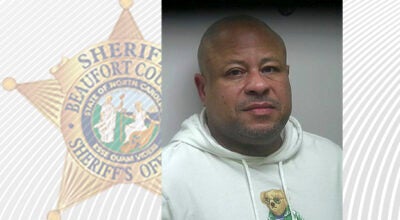Two locals robbed in scam
Published 12:17 pm Wednesday, July 11, 2012
It starts with a simple phone call and a promise of sweepstakes winnings. There’s a hook, of course, but these scam artists set that hook with the lure of “free money,” then reel their unsuspecting catch in. Eventually, they walk away with their victim’s cash.
That’s how two Beaufort County residents, one in Washington, the other in Pantego, were defrauded of $905 earlier this week.
According to the Beaufort County Sheriff’s Office, both victims received a phone call congratulating them as “Clearing House” sweepstakes winners. One was told he’d won $800,000; the other, $8,000 or a chance to win a new car. However, both were told fees and taxes applied to their winnings. Before the prizes could be delivered, the winners had to pay up — $450 in one case, $455 in the other. They did, by purchasing pre-paid money cards then relaying the card numbers to the scammers as instructed. Their prizes would be delivered the next day, they were told.
No prizes were delivered and the money cards were wiped clean, said Major Kenneth Watson, spokesman for the sheriff’s office. When no prizes arrived, both victims realized they’d been scammed.
For years, law enforcement has fielded reports of sweepstakes scams like these, as often as once a week in Beaufort County alone, said Watson. Sometimes the reports come from targeted victims who have recognized an attempt to scam them; others come from people who have already handed over more than $20,000 to the con men.
The scam is endemic, with variations on the prize-winning theme widely reported across the country. The prizes supposedly won and reasons why the victims must pay up front for their prizes vary — taxes and fees, armored vehicle breakdowns, problems with wiring money, bank accounts, paperwork, customs. Sometime victims receive checks that later turn out to be fraudulent.
“Scammers are continually modifying the scam to keep it new and fresh,” said Watson. “They really have no limit on what they will say to get you to give them money… the only limit is their imaginations.”
While the scammers’ basic spiel may vary, one element is common to each attempt: the victims. They target the elderly — one victim of the scams played out in Beaufort County this week was in his seventies; the other, in his early eighties. Those experiencing age-related cognitive decline, and unable to recognize the scam, are particularly at risk.
“They exploit the more trusting, older generations,” explained Watson, adding that many who fall for the fabricated “fees” are those least able to afford them.
Because the scam perpetrators operate outside of the U.S., they are largely untouchable by local law enforcement, a situation that has led to states collaborating in preventative measures.
In 2005, when Western Union was the primary mode of money transfer for the scams, N.C. Attorney General and nine other states’ attorneys general on behalf of 48 states negotiated an agreement with the company
According to the North Carolina Center for Public Policy Research website, under the agreement, Western Union agreed to institute better warnings on their materials and in their offices, train their clerks to recognize the telltale signs that a transaction is fraudulent. In 2008, an agreement with another wiring firm, MoneyGram, was reached.
The best protection against this type of scams is be wary, said Watson, adding that it’s a better choice to contact local law enforcement than to send money or provide any account or personal identification information to unknown persons. He encouraged residents to remember that if it sounds to be true, it probably is not true.




